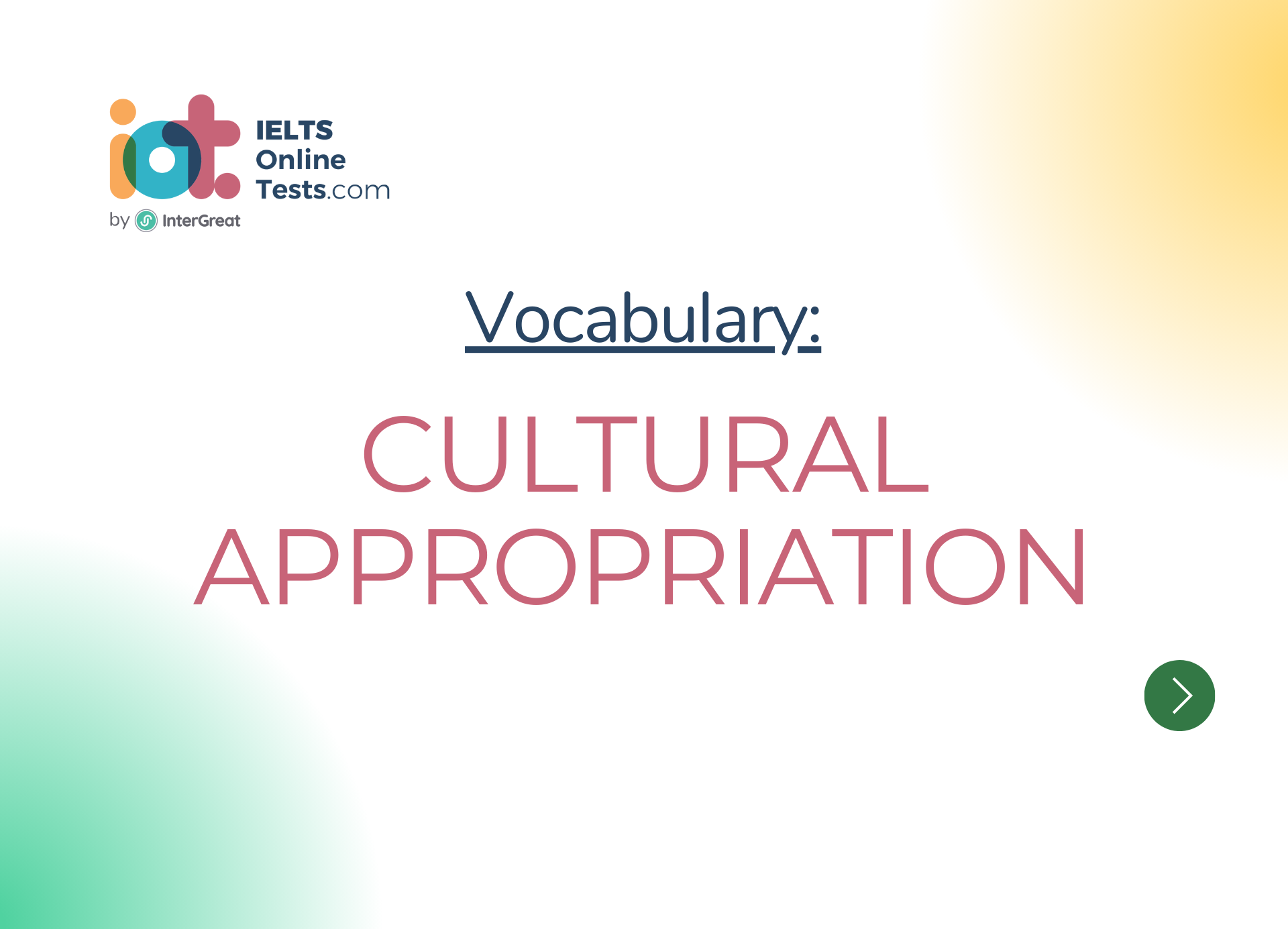
Cultural appropriation
Below is a detailed list of vocabulary related to "Cultural appropriation" suitable for IELTS band 6.5-8.0:
Cultural Appropriation:
Definition: The adoption or use of elements from one culture by members of another culture, often without understanding or respecting the cultural significance or context.
Cultural Misappropriation:
Definition: A negative form of cultural appropriation, where elements of a culture are taken and used in a way that is disrespectful or offensive to the originating culture.
Cultural Exchange:
Definition: The mutual sharing and borrowing of cultural elements between different cultural groups in a respectful and equitable manner.
Cultural Appreciation:
Definition: The genuine admiration and respect for the cultural practices, traditions, and expressions of another culture.
Cultural Sensitivity:
Definition: The awareness and understanding of different cultural practices, beliefs, and norms to avoid causing offense or misunderstanding.
Cultural Hybridity:
Definition: The blending and mixing of different cultural elements to create new cultural expressions and practices.
Cultural Influence:
Definition: The impact or effect that one culture has on another, often through cultural exchange and interaction.
Cultural Identity:
Definition: The sense of belonging and identification with a particular cultural or ethnic group, often influencing individual behavior and attitudes.
Cultural Authenticity:
Definition: The degree to which cultural expressions and practices remain true to their original or traditional form.
Cultural Dialogue:
Definition: The open and respectful communication between individuals or groups from different cultures to promote understanding and mutual learning.
Cultural Integration:
- Definition: The process of incorporating cultural elements from one culture into another in a way that respects and maintains their original meaning and significance.
Cultural Boundaries:
- Definition: The limits or lines that define and separate different cultures, influencing what is considered appropriate or inappropriate in terms of cultural exchange.
Cultural Patrimony:
- Definition: The cultural heritage or assets that are considered valuable and unique to a particular culture, often requiring protection and preservation.
Cultural Retention:
- Definition: The act of maintaining and preserving cultural practices, traditions, and knowledge over time, often in the face of external influences.
Cultural Homogenization:
- Definition: The process by which diverse cultures become more similar or uniform due to globalization and cultural exchange.
Cultural Diversity:
- Definition: The presence of multiple and varied cultural groups within a society or community, promoting a rich tapestry of different traditions and customs.
Cultural Nationalism:
- Definition: The belief in the importance of preserving and promoting one's own culture, often in response to perceived threats of cultural appropriation or assimilation.
Cultural Dissimilation:
- Definition: The deliberate rejection or distancing from certain aspects of one's own culture, often in favor of adopting elements from other cultures.
Cultural Imperialism:
- Definition: The dominance and influence of one culture over others, often leading to the erosion of local cultural practices and traditions.
Cultural Relativism:
- Definition: The concept that cultural practices and beliefs should be understood and evaluated in the context of their own culture, rather than through the lens of one's own culture.
By incorporating these vocabulary words into your studies and practice, you can enhance your language proficiency and be better prepared for the IELTS exam. Best of luck!




